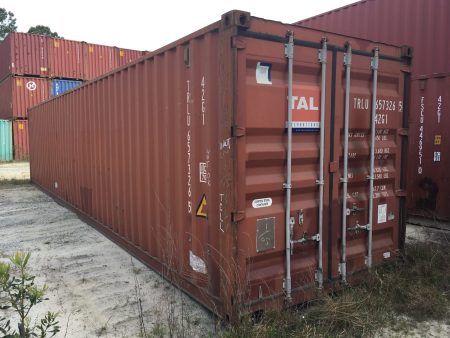Shipping Container Locks: Keep Your Container Secured
Thursday, January 22nd, 2026
When you are storing valuable equipment, confidential documents, pharmaceuticals, or running an on-site container office, security is not optional. Shipping container locks are the first and most important line of defense against theft, vandalism, and unauthorized access.
While shipping containers are built tough, relying on factory hardware alone is rarely enough. Choosing the right lock system protects your assets, limits liability, and gives you peace of mind after hours.
Below is a clear breakdown of shipping container security, the types of locks available, and which options make the most sense for real-world use.
Are Shipping Containers Secure by Design?
Yes, shipping containers are inherently secure.
They are manufactured from heavy-duty Corten steel and engineered to transport high-value cargo across oceans and international ports. A standard container can last 25 years or more and is designed to resist harsh weather, stacking pressure, and forced entry.
Even when containers are repurposed into offices, storage units, or modified structures, their core security remains intact. Adding doors, windows, or ventilation does not weaken the container when paired with proper locking systems and security upgrades.
The key is pairing the container’s structural strength with the right locking hardware.
Built-In Shipping Container Locks Explained
Most shipping containers come equipped with cargo doors that span the full width of one end of the container. These doors use a cam-and-lock system that includes:
- Vertical steel locking bars
- Rotating cam mechanisms
- Locking handles that secure the doors in place
This system prevents doors from opening during transport and offers a solid baseline level of security. However, factory hardware is not designed to stop determined thieves with tools.
That is where after-market shipping container locks come in.
Best Lock Upgrades for Cargo Doors
Lock Boxes for Shipping Containers
One of the most effective security upgrades is a welded or bolt-on lock box.
A lock box encloses the padlock, preventing access by bolt cutters, saws, or grinders. Without visibility or leverage, forced entry becomes significantly more difficult.
Lock boxes are highly recommended for:
- Long-term storage containers
- Containers located on job sites
- Units storing high-value inventory
Heavy-Duty Padlocks
Not all padlocks are created equal. For shipping containers, always use:
- Hardened steel shackle locks
- Hidden or shielded shackle designs
- Weather-resistant coatings
These locks are specifically designed to withstand cutting, drilling, and corrosion.
Alternative Doors and Their Locking Options
Not every container relies solely on cargo doors. Many modified containers use additional access points, each requiring its own security solution.
Personnel Doors
Personnel doors function like standard building doors and are often used for offices or frequent access.
Recommended security options include:
- Commercial-grade deadbolts
- Latch guards that cover the locking seam
- Reinforced strike plates
Latch guards are particularly effective. They bolt from the inside and prevent prying or tampering at the door seam.
Roll-Up Doors
Roll-up doors are common for mobile storage, warehouses, and equipment access.
Security options include:
- Interior slide locks
- Shielded padlock hasps
- Lock bars that prevent lifting
Keypad and Code-Based Entry Locks
For containers used as offices or shared workspaces, keypad entry locks offer added convenience and control.
Benefits include:
- No physical keys to lose
- Custom access codes for staff
- Easy code changes when personnel change
These locks are ideal for private offices, medical storage, or administrative containers where controlled access matters.
Additional Shipping Container Security Upgrades
Locks are critical, but they should not be your only security measure. Depending on your use case, consider the following upgrades:
- Burglar bars for container windows
- Interior lock bars for added reinforcement
- Motion sensor lighting around the container
- Alarm systems or camera integration
Layered security always works better than a single solution.
How to Choose the Right Shipping Container Lock
A lock that works well for a short-term job site may not provide enough protection for long-term storage or sensitive materials. Taking a few minutes to evaluate your specific situation helps prevent overpaying for unnecessary features or, worse, under-protecting valuable assets.
Ask yourself:
- What is being stored inside the container?
- How long will items remain inside?
- Is the container located in a high-traffic or remote area?
- How often will access be required?
High-value, long-term storage requires maximum protection. Short-term or frequently accessed containers may benefit from convenience-focused locks paired with visible deterrents.
Secure Your Container With Transocean Equipment Management
At Transocean Equipment Management, we provide durable, proven shipping container locks designed for real-world conditions. Our team can help you select the right lock system based on how your container is used and where it is located.
Contact our North Carolina or South Carolina offices today for a free quote, or complete our online form for a fast response.
Protect your container properly and rest easy knowing your assets are secure.






